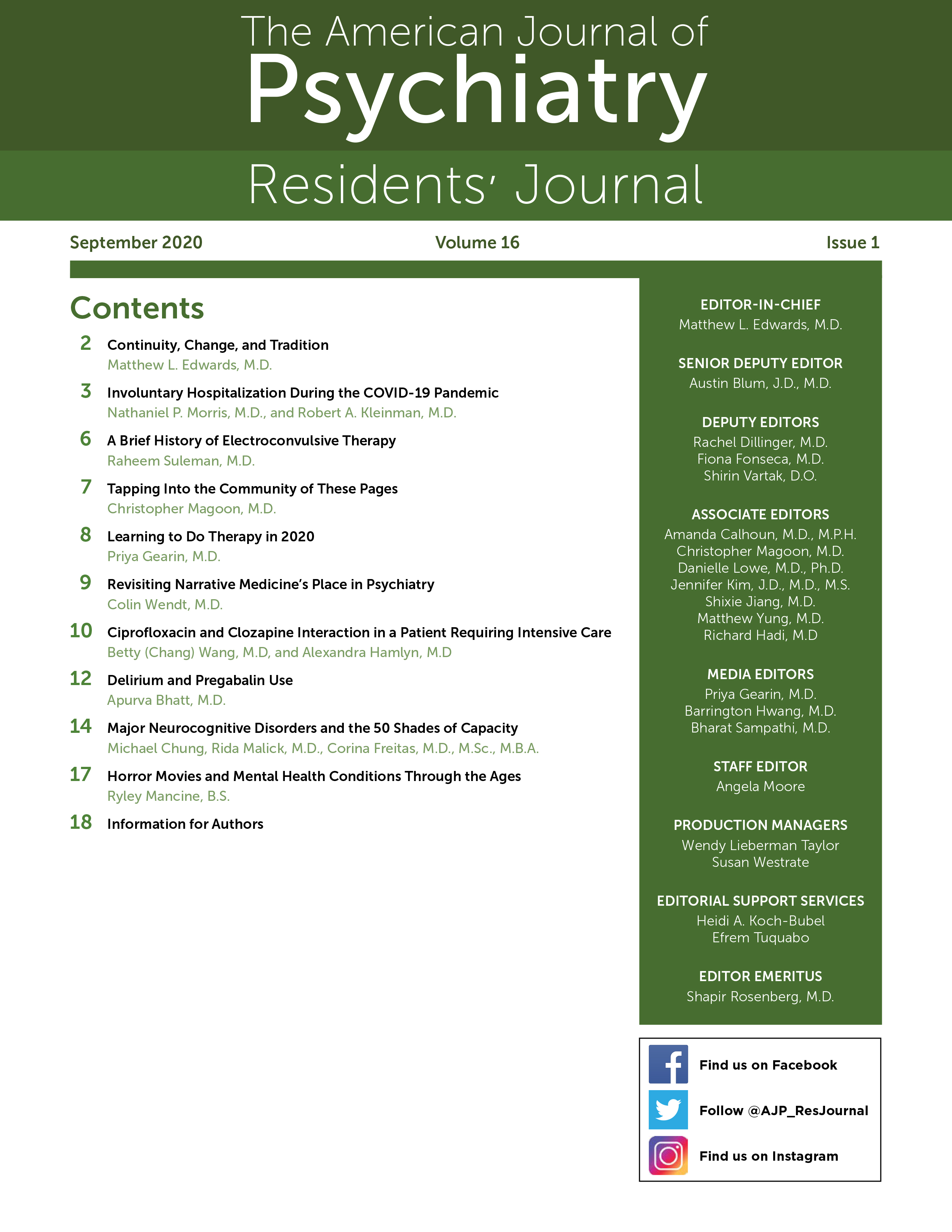Tapping Into the Community of These Pages
Recently, I have been frustrated by my inability to capitalize on the solitude of quarantined life. Alone in my apartment, I sit down to work on something—really anything—productive and end up going down yet another Internet rabbit hole or turning on the radio and just sitting. A stronger or smarter person would be able to turn the time into a manuscript or at the very least a clean apartment, I think to myself. I remember Jean-Paul Sartre’s words: "If you are lonely when you’re alone, you are in bad company."
Nonsense, I remind myself yet again. Even solitary pursuits require community and balance.
These are isolating times. We stay apart, wear masks, and hunker down. We are robbed of simple acts of kindness. Of course, physicians, including trainees, have much to be grateful for. We have relatively stable jobs and connections within the health care system should we fall ill. At the same time, we are not immune to the effects of isolation.
As a colleague recently told me, "Sitting in my apartment alone all day, it’s easy to feel how hollow life can be." Personally, since the pandemic began, I have been separated from both my psychiatric training and my pregnant wife for months at a time. "Redeployed" to work in medical ICUs, life is completely different than it was in the first half of my intern year, both inside and outside the hospital. In these interrupted, isolated times, what are the roles of psychiatric scholarship, of psychiatric training, or of medical journals as a whole?
Although it may not always feel like it, psychiatry training is, in fact, a shared experience. In departments across the world, we are engaging in a process that is foundationally similar. We journey from being closely supervised medical students to becoming autonomous psychiatrists. This journey will elicit common questions, from the concrete (How can I best use paroxetine?), to the existential (How do I cope with a patient’s suicide?), to the contextual (How did society view psychosis in a different time or place?).
These questions will largely be answered within the walls of our home institutions. But why leave the conversation there? Isolation is rarely a helpful set point. Until I applied to be an editor for the Residents’ Journal, I had not spoken with a trainee from outside my institution since the interview trail, and I don’t think my experience is unique.
My hope is that we can use these pages to grow together. We can ease the intellectual and emotional burden of being a trainee during and after the pandemic.
A more unified conversation among psychiatry trainees can allow us to better serve our patients. For example, given the unruly ecosystem of American medicine, the more synchronized our voices, the more successful our advocacy efforts can be. A common forum can also help us as individuals; most psychiatry residents will eventually work at an institution apart from where they trained, and it’s helpful to gain perspective and experience from other centers.
Fostering togetherness is, at first glance, an unusual mission for a medical journal, but this aim actually honors the original purpose of medical literature: to share observations among a dispersed community (1).
Amid these isolating and challenging times, here’s to turning to these pages to grow, learn, and share together. May we as a field be a little wiser, more prepared, and cohesive due to this journal. My hope is that readers will feel invited to join this community by sharing their observations, scholarship, and experiences.
1. : A brief history of the evolution of the medical research article. Clujul Med 2015; 88:567–570 Google Scholar



